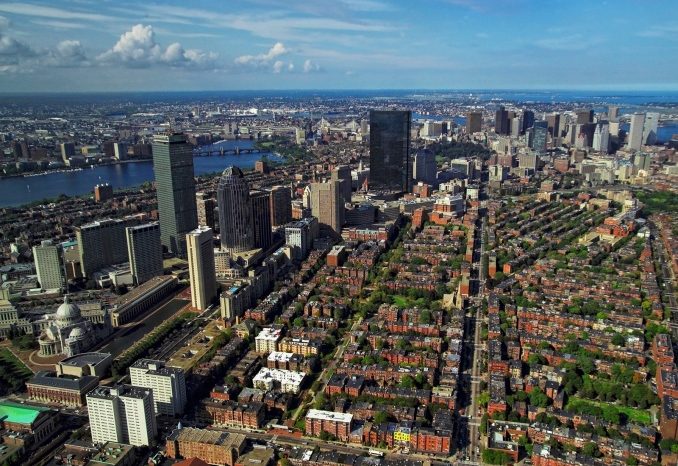Report Ranks Boston No. 1 in Income Inequality: What Does It Mean?
A report published last week by the Brookings Institution ranked Boston number one, but not in a good way. The report gave Boston the ignominious title of having the nation’s worst income inequality, according to its 95/20 ratio (the difference in income between households in the 95th percentile and those in the 20th). Boston placed just above New Orleans, Atlanta and Cincinnati. New England counterparts New Haven and Providence were also included near the top of the inequality rankings.
So inequality in Boston is high, but how much does this matter?
Boston’s inequality ranking is troubling, but context is important here. For example, the Brookings report acknowledged that Boston’s ranking is at least in part due to its unusually large student population. Students tend to earn much lower incomes, which drives down average incomes at the low end of the scale. Report co-author Alan Berube acknowledged that 4 percent of Boston’s adult population is in graduate school, a figure that is quadruple the national average.
While it doesn’t merit panic, the Brookings report should serve as a reminder of some important underlying issues. Much is being made of the recent announcement that General Electric will be moving to Boston, covered by Pioneer last week, as a sign of promising things to come. GE’s decision is important, but it could exacerbate inequality. GE’s new headquarters will almost exclusively bring white-collar jobs to the city. And as Jon Chesto notes for the Boston Globe, the company is also closing down a factory in Avon and sending hundreds of blue-collar manufacturing jobs to Florida. While this job loss will mostly impact those on the periphery of Greater Boston, the city proper continues to face aggressive gentrification, which must be closely monitored. Meanwhile, the city’s poorest 20 percent of households saw their incomes shrink by 9 percent from 2007 to 2014.
Steps can be taken to fight income inequality. The Brookings report notes that a lack of affordable housing for low-income families is one of the primary drivers of the problem. Mayor Marty Walsh announced in his State of the City address a series of measures designed to alleviate the problem. Most notably, Mayor Walsh discussed the creation of an Office of Housing Stability to provide assistance for tenants. Walsh also stated that he intends to enact on-the-job training and education programs for low-income workers to give them more of a leg up. This represents an encouraging step forward. The importance of these kinds of programs was illustrated by the winner of Pioneer’s 2013 Better Government Competition, Michael J. Munday, whose paper, “Manufacturing Revitalization,” argued for the use of on-the-job training programs to help reinvigorate the manufacturing labor market. These types of initiatives, along with programs offering educational opportunities to low-income families, such as vocational schools, seek to empower the workforce in ways that can potentially impact income inequality in a positive, sustainable fashion. Hopefully, Mayor Walsh’s proposals will be able to yield some tangible results.
Income inequality is one of the most pressing issues we face as a nation—and Boston is no exception to this trend. Mayor Walsh has done the right thing by moving to address it. Now it’s time for him to put his money where his mouth is.
Michael Weiner is a student at Northeastern University studying International Affairs. He is working as a Research and Programs Assistant at Pioneer Institute through the Northeastern Co-op program. Find Michael on Twitter at: @michaelgweiner



